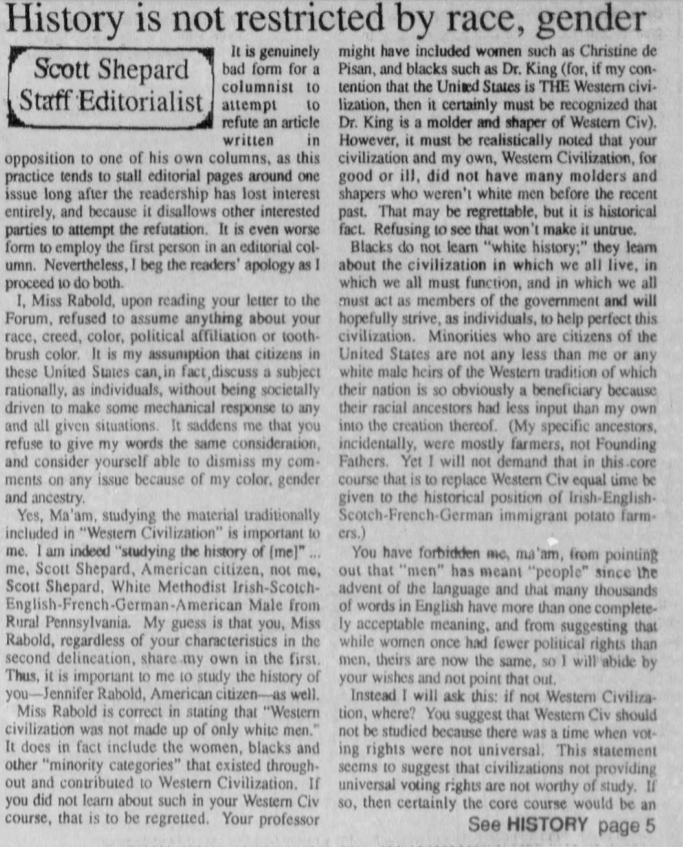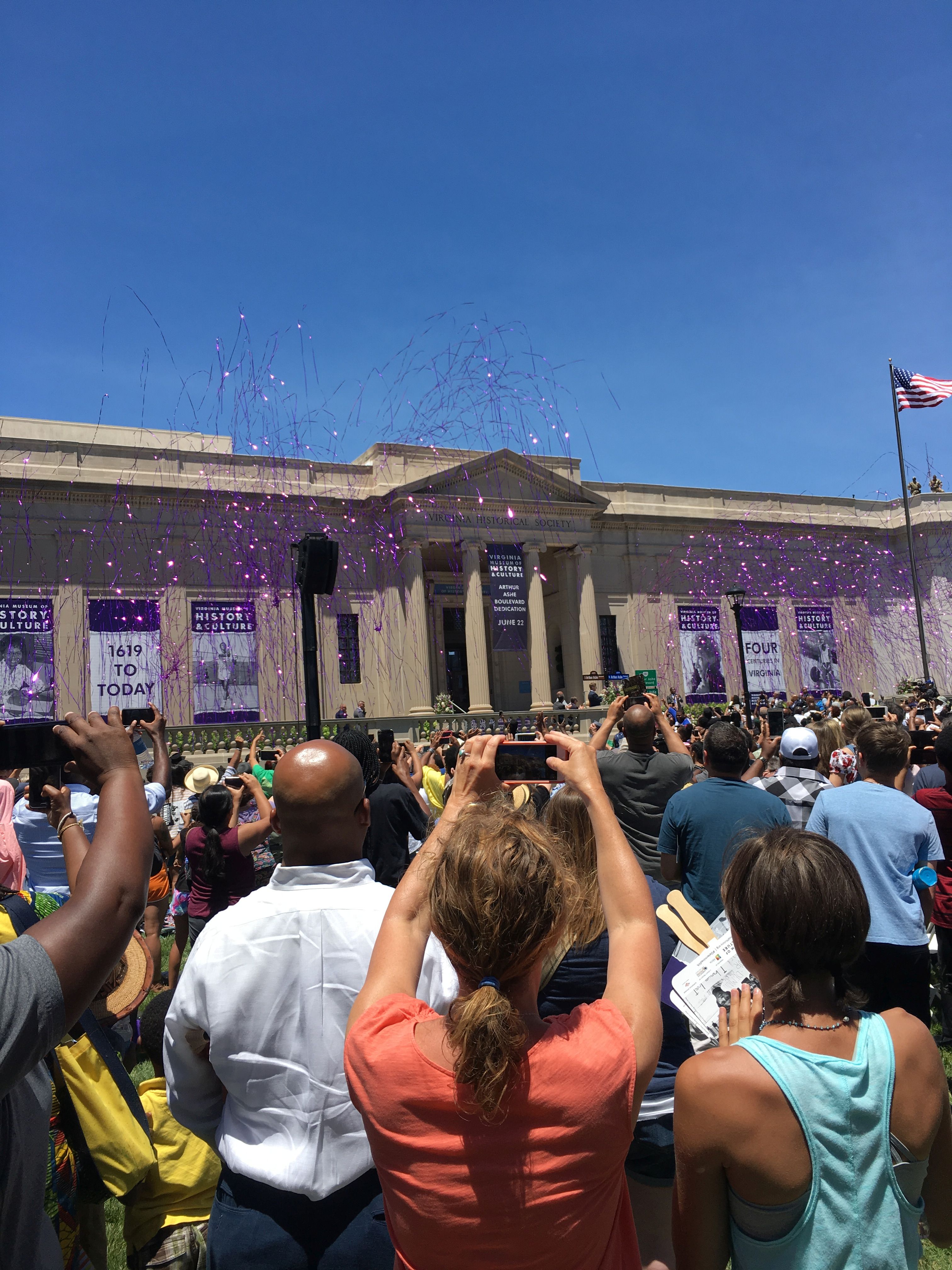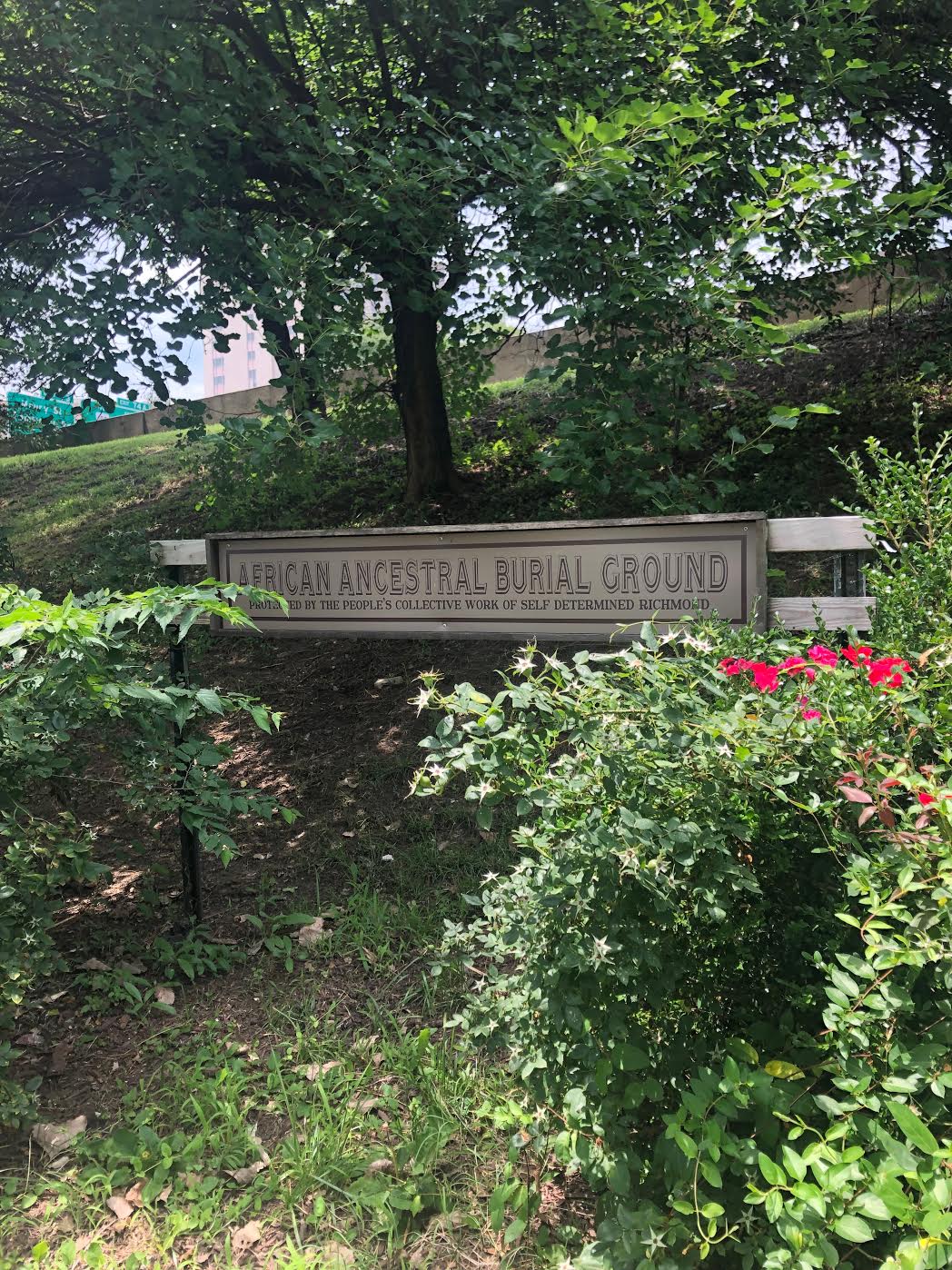by Meghna Melkote
Meghna Melkote is a rising sophomore from Scranton, Pennsylvania majoring in Political Science and Philosophy and minoring in Music. This is her first summer working with the Race & Racism Project as a member of Team Archive. She is involved with the Mock Trial and Debate teams, performs in chamber music ensembles, is a member of the Phi Alpha Delta Pre-Law Fraternity, and is a content curator for public history platform bunkhistory.org.
 Throughout my research, I’ve found a lot of Collegian articles over whether or not to require Western Civilizations as a course. This article, written by staff editorialist Scott Shepard, is a response to a piece written by student Jennifer Rabold. Shepard’s main argument is that “history is not restricted by race or gender,” and that Western Civilization is everyone’s history. I’ve been doing research on the history of an integrated curriculum, and I’ve generally stayed away from inserting a strong opinion into what I find. However, it was this article that allowed me to form an argument as to why we need to engage different, non-Western perspectives in our academics. Rather than simply discuss what he says, I would like to take some time to directly refute Shepard’s argument in a manner relevant to my research project.
Throughout my research, I’ve found a lot of Collegian articles over whether or not to require Western Civilizations as a course. This article, written by staff editorialist Scott Shepard, is a response to a piece written by student Jennifer Rabold. Shepard’s main argument is that “history is not restricted by race or gender,” and that Western Civilization is everyone’s history. I’ve been doing research on the history of an integrated curriculum, and I’ve generally stayed away from inserting a strong opinion into what I find. However, it was this article that allowed me to form an argument as to why we need to engage different, non-Western perspectives in our academics. Rather than simply discuss what he says, I would like to take some time to directly refute Shepard’s argument in a manner relevant to my research project.


 I visited Lumpkin’s Jail (also known as the Devil’s Half Acre) and the African Burial Ground in Richmond–Lumpkin’s Jail was the largest slave-holding facility in Richmond during the mid 19th century. The jail historically has been home to the typical cruel and unusual treatment of enslaved people by Robert Lumpkin, who purchased the property and created a two story brick slave jail that held enslaved people until they were sold. After emancipation, a historically black seminary was founded and later on, a parking lot covered the area. We also visited the African Burial Ground, or, as it was originally titled in a city map, the “Burial Ground for Negroes.” As we learned from the historical markers on the site, it was a poor quality burial ground, with the danger of heavy rains washing the remnants and land into the James River, and also was where convicts were hung. After a new site opened, the grave site was abandoned and the construction of what would later become I-95 destroyed the land. In the 1990s, activists like Defenders for Freedom, Justice, & Equality and the Slave Trail Commission began working on commemorating and memorializing the site. It currently rests as a large field with information signs explaining the history, surrounded by memorials – it is not clear who left the current ones, but it is known that memorials left by survivors had disintegrated with time.
I visited Lumpkin’s Jail (also known as the Devil’s Half Acre) and the African Burial Ground in Richmond–Lumpkin’s Jail was the largest slave-holding facility in Richmond during the mid 19th century. The jail historically has been home to the typical cruel and unusual treatment of enslaved people by Robert Lumpkin, who purchased the property and created a two story brick slave jail that held enslaved people until they were sold. After emancipation, a historically black seminary was founded and later on, a parking lot covered the area. We also visited the African Burial Ground, or, as it was originally titled in a city map, the “Burial Ground for Negroes.” As we learned from the historical markers on the site, it was a poor quality burial ground, with the danger of heavy rains washing the remnants and land into the James River, and also was where convicts were hung. After a new site opened, the grave site was abandoned and the construction of what would later become I-95 destroyed the land. In the 1990s, activists like Defenders for Freedom, Justice, & Equality and the Slave Trail Commission began working on commemorating and memorializing the site. It currently rests as a large field with information signs explaining the history, surrounded by memorials – it is not clear who left the current ones, but it is known that memorials left by survivors had disintegrated with time.